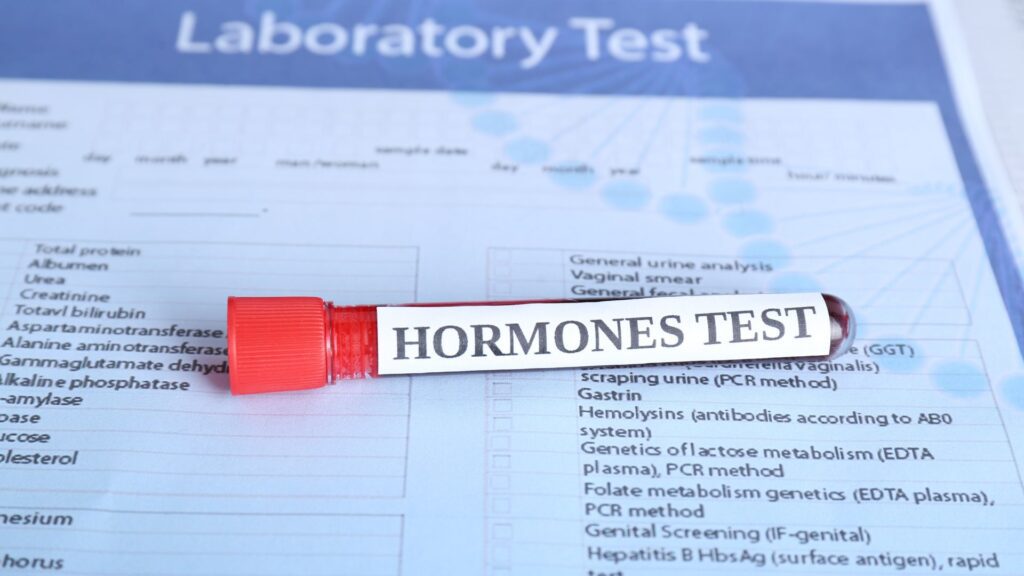The Role of Hormones in Fertility
How Hormonal Imbalances Can Impact Your Ability to Conceive
Hormones are important biological agents that regulate a number of body processes, including fertility. Because hormone abnormalities directly impact the reproductive system, they may make conception challenging. Gaining knowledge about hormone function can enable you to take proactive measures to increase fertility.

The Role of Estrogen in Fertility
The main hormone in charge of preparing the uterus for pregnancy is estrogen. In order to prepare the uterine lining for embryo implantation, it controls the menstrual cycle. An irregular menstrual cycle can result from excessively high or low estrogen levels, which can make conception more difficult. Reproductive health depends on having estrogen levels that are balanced.
Progesterone: The Pregnancy Hormone
Progesterone aids in pregnancy maintenance and gets the uterus ready for a fertilized egg. It maintains the uterine lining thick, which is appropriate for the implantation of embryos. Low progesterone levels can make it harder to conceive or perhaps result in early losses. For everyone attempting to conceive, progesterone monitoring and balancing is essential.

The Importance of Luteinizing Hormone (LH) and Follicle-Stimulating Hormone (FSH)
Together, LH and FSH control the ovulation process. Ovarian follicles are stimulated to develop by FSH and released during ovulation by LH. It may be difficult to conceive if these hormones are out of balance since it can interfere with ovulation. Regular ovulation cycles are ensured by appropriate levels of LH and FSH, which improves reproductive prospects.

Thyroid Hormones and Their Impact on Fertility
Hormones that control metabolism and energy levels are produced by the thyroid gland. Menstrual cycles, ovulation, and general fertility can all be impacted by thyroid abnormalities, such as hypothyroidism or hyperthyroidism. Thyroid hormone levels are crucial for conception because normal thyroid function is required to sustain a healthy reproductive system.

Prolactin: More Than Just a Milk Hormone
Fertility is influenced by prolactin, which is usually linked to nursing. Prolactin suppression causes FSH and LH to be reduced, which might disrupt ovulation. Conception may be hampered by this imbalance. Measurement of prolactin levels could be a first step toward a treatment plan if you are experiencing infertility.
The Role of Androgens in Female Fertility
Androgens, also known as “male hormones,” are found in lesser quantities in women. They have an impact on how follicles grow in the ovaries. High androgen levels can cause irregular periods and impair fertility. They are a hallmark of disorders such as PCOS (Polycystic Ovary Syndrome). A good conception process depends on controlling androgens.
Insulin Resistance and Its Impact on Hormonal Balance
Insulin affects hormone levels in addition to controlling blood sugar. Insulin resistance can cause androgen levels to rise, impairing ovulation via disrupting ovarian function. Reproductive health can be enhanced by controlling insulin levels by dietary and lifestyle modifications, particularly for individuals with PCOS.

Cortisol: The Stress Hormone’s Effect on Fertility
Elevated cortisol levels from prolonged stress might upset hormonal balance and have an impact on ovulation. Elevations in cortisol disrupt the body’s capacity to sustain appropriate amounts of reproductive hormones. Stress-reduction methods like yoga and meditation can increase the likelihood of conception by regulating cortisol levels.

Hormonal Testing: A Key Step in Understanding Fertility Issues
A crucial first step for anyone struggling with infertility is hormone testing. It offers insightful information on the potential effects of hormone levels on fertility. Hormonal abnormalities are frequently reversible with a precise diagnosis and course of treatment, enabling a fruitful pregnancy.

Recovering hormonal stability is essential to improving fertility and raising the likelihood of pregnancy. Couples can take proactive measures toward realizing their dream of children by comprehending the function hormones play and correcting imbalances. See a medical expert to properly diagnose and treat any hormonal problems.
Start Your Parenthood Life
“Contact us today, and we will gladly provide our special consulting services.”

